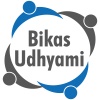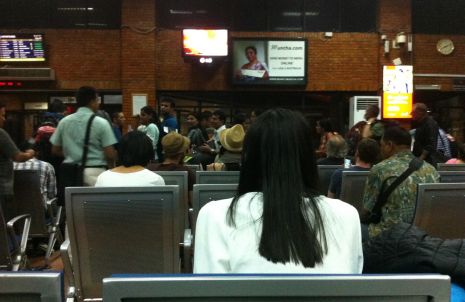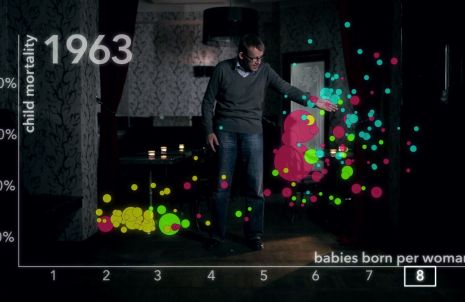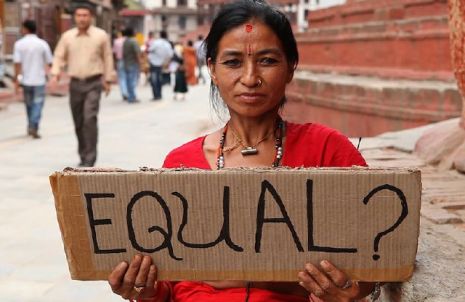Bikas udhyami
A critical part of our mission has been to promote social innovation and encourage other young people to become social entrepreneurs. Therefore, from the start, we decided that it was important to document and share via our 'Bikas Udhyami Blog' the stories, insights and experiences of other young social entrepreneurs in Nepal who are changing the way business is done.
Check out our past blogs below as well as our publications 'Social Entrepreneurship in Nepal 1: Stories of Young Entrepreneurs Changing the Way Business is Done' and 'Social Entrepreneurship in Nepal 2: Stories of Young Entrepreneurs Changing the Way Business is Done'.
SUBSCRIBE
Is banning female migrants from working as domestic workers the only solution?May 22, 2017
Subuna Basnet
In March 2017, the Parliament's International Relations and Labor Committee instructed the government to implement a ban on Nepali women to travel to Gulf countries for employment as domestic workers. The order was the result of a field visit the Committee made to Qatar, Saudi Arabia, United Arab Emirates and Kuwait - main destination countries for Nepali migrant workers- during which it found "widespread abuse and exploitation of domestic workers”. The ban especially affects female migrant workers, who account for 4.28 percent of total migrant worker’s population in 2014/15. Read More
Development Statistics: Understanding Development better through DataFebruary 20, 2017
Bikas Udhyami
Globally, we have come a long way since the 1950’s, when global life expectancy was only 48 years, 36 percent of the population was literate and 54.8 percent lived in extreme poverty (Our World in Data). Global life expectancy now stands at just over 71 years (WHO 2016), global adult literacy is estimated at 86% (UNESCO 2015) and 10.6 percent of the global population is poor i.e. 767 million people living on less than 1 US$ 1.90 per day (World Bank 2013). Data has played a key role in being able to track progress towards national and global development outcomes such as the Millennium Development Goals (MDGs) and the adoption of the Cape Town Global Action Plan for Sustainable Development Data during the UN World Data Forum in January of this year is an explicit recognition of the importance of data to achieve the Sustainable Development Goals (SDGs). Read More
Why aren’t we talking about the “Blue Ribbon”?May 12, 2017
Ankita Amatya
How many of us actually know about the “blue” ribbon? Women’s health has been a great priority worldwide and the result shows. Everyone is now familiar with the “pink” ribbon and its association with breast cancer. Yet, few know that there is also a “blue” ribbon to raise awareness about prostate cancer. Men’s health, somehow, evades the attention of people. Currently, the life expectancy of female in Nepal is 70.8 whereas for male it is 67.7. How come it’s the way it is?
Read More
Suicide in Nepal: Cowardice or Bravery?April 6, 2017
Lokmani Subedi
The death of revolutionary Nepali rapper YamaBuddha shocked many young Nepali. His famous song ‘Saathi’, an ode to his friend who died of drug addiction was still freshly on everyone’s mind. Recently, he had organized a ‘rap battle’ in Nepal, which saw huge youth participation and he was also preparing his upcoming album. He was found dead hanging in his bathroom on January 14, 2017. Read More
Citizenship in NepalNovember 28, 2016
Roshi K.C.
One year after the adoption of the new Constitution, women’s right to citizenship has been further curtailed with the recent passing of the draft Act amending the Citizenship Act. Following, the adoption of the Constitution in September last year, the Government has been working on amending the Citizenship Act 2006, which sets out more detailed provisions for attaining citizenship to ensure conformity with the Constitution. According to the Constitution, any person whose father and mother are citizens of Nepal is entitled to Nepali citizenship by descent. However, Clause 8 of the draft Citizenship Act has made it mandatory for a woman born to Nepali parents, but married to a foreigner to produce official documents from the authority of her husband’s side as a proof of not having acquired any citizenship.
Read More





